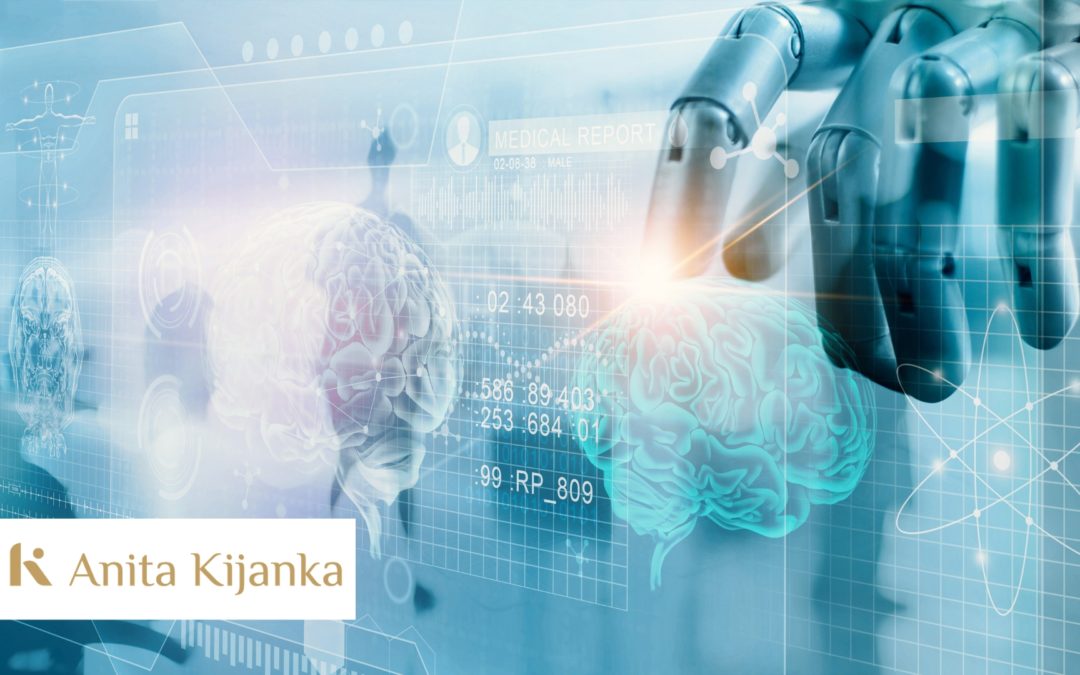In the era of technological progress and digitization, artificial intelligence (AI) is increasingly seen as a key driver of development. The COVID-19 pandemic proved to be a true breakthrough, as AI not only supported healthcare operations but also evolved to a new level. With its immense potential, AI can revolutionize medicine at almost every stage, enhancing the efficiency and accessibility of diagnostic processes, analyzing provided materials, creating personalized therapies, and developing modern medications.
New Solutions to Old Problems
Today’s healthcare system needs not only skilled professionals but also tools that enable efficient and rapid action. This is particularly important as patients have expressed dissatisfaction with the quality and efficiency of Poland’s healthcare system post-pandemic. According to a survey conducted by SW Research in July 2023 for the Federation of Polish Entrepreneurs (FPP), only 15% of respondents rated the functioning of the public healthcare system positively. Moreover, over half of the respondents believe there is an urgent need to improve the quality of healthcare (55.5%), access to new technologies and diagnostics (63.5%), and availability of specialist doctors (80.7%). Many also feel that little has changed since the end of the lockdowns and expect decisive reforms from the government in this area.

AI, with its ongoing advancements, offers a chance for change. The healthcare sector owes much to AI, including the introduction of online services such as teleconsultations, e-prescriptions, and the Individual Patient Account (IKP). Interestingly, a survey conducted in January 2023 by the e-Health Center and the My Patients Foundation highlighted the public’s expectations for improving healthcare services. The results showed that e-health is one of the few areas enjoying widespread popularity and satisfaction among adults in Poland. An impressive 9 out of 10 respondents reported they gladly use e-prescriptions, and over 60% positively evaluated teleconsultations. Additionally, respondents expressed interest in the further development of IKP functionalities, viewing the platform as a trusted source of medical information.
Thanks to these digital solutions, patients can receive consultations without physically visiting healthcare facilities, which is especially valuable in areas with limited access to specialists.
Despite many challenges in Poland’s healthcare system, the growth of AI in healthtech is evident and accelerating. This is demonstrated not only by the numerous solutions already implemented but also by the innovative developments currently underway, including initiatives from Polish medical companies.
From Diagnostics to Personalized Therapies and Innovative Drugs
The applications of artificial intelligence in today’s medicine are vast and interconnected, offering innovations eagerly anticipated by patients. One excellent example is the improvement in diagnostics. Machine learning algorithms allow for much faster and more accurate analysis of medical images, such as X-rays and CT scans. Researchers believe that AI’s effectiveness is comparable to that of highly skilled specialists, marking a significant step toward breakthroughs in personalized treatment.
By analyzing genetic data, medical history, and patient responses to medications, doctors can tailor therapies to individual needs. This approach is already being implemented by companies like Tempus Labs in the United States, which uses AI to develop precise treatment plans for oncology, cardiology, and even depression.

Data analysis and visual results interpretation are not the only fields where AI excels. It is also a valuable tool in the health insurance industry. AI can identify suspicious claims and detect fraud. By recognizing patterns in real-time and monitoring records, AI-based security systems enhance financial efficiency in the sector and protect against fraudulent activities.
AI is also transforming drug development and selection. Companies like BenevolentAI leverage tools such as ChatGPT to create engines for analyzing medical literature and clinical data. Physicians using this software can adjust treatment parameters more quickly and accurately, estimating outcomes even before implementation.
The innovations brought to healthcare by AI are undeniable. The challenges faced by the healthcare system undoubtedly require the support of artificial intelligence. Improved diagnostics and therapies, advanced data analysis, and process automation are just the beginning of the benefits that increasingly and effectively support patients in their daily lives.
—
Stay tuned to the “Health Tech of the Week” series, where we will explore more fascinating stories from the world of medical technologies that are changing the face of healthcare. If you are leading an innovative project in the field of new technologies and medicine or would like to recommend an interesting solution, feel free to contact us at: [email protected].
Why do we focus on balance? How mental health is gaining value
In the "Health Tech of The Week" initiative, I discuss health comprehensively, emphasizing the importance of a holistic approach to individuals....
Cognitive Behavioral Therapy from Home Instead of the Office
They’ve moved therapists and patients in front of a computer screen, increasing access to therapy and mental health support—without losing its...
Technology Guarding the Lives of Newborns: Polish Startup Wins the Mother and Child Startup Challenge 2024
On November 27, 2024, Warsaw's Capitol Theatre hosted the grand finale of the third edition of the Mother and Child Startup Challenge—one of the...




